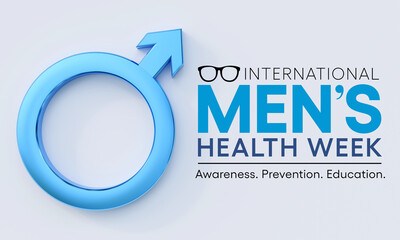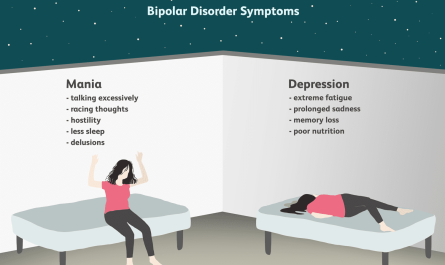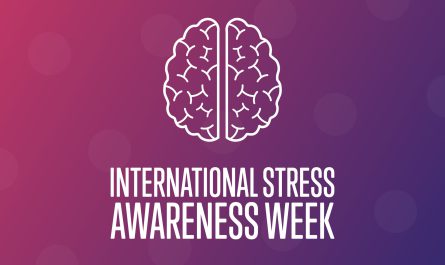National Men’s Health Week
Every year, National Men’s Health Week is observed during the week before Father’s Day with the goal of increasing awareness of men’s health issues and motivating men to put their health first. Men of all ages should remember to take initiative to maintain a healthy lifestyle, both physically and emotionally, not only throughout this special week but everyday. Let’s examine the significance of National Men’s Health Week and consider how to encourage men’s overall health.
The Men’s Health Network (MHN) is credited with establishing National Men’s Health Week, which was first observed in the United States in 1994. MHN is a nonprofit organization dedicated to promoting preventive measures and increasing awareness of men’s health issues.Congressman Bill Richardson of New Mexico, who supported the legislation authorizing the foundation of National Men’s Health Week, is the actual originator of the event. The campaign aims to address the inequities in men’s health and motivate them to take the initiative in bettering their health.
According to research, males are less likely than women to talk freely about their health issues,especially emotional and mental health, or engage in regular physical exercise, or seek out preventive healthcare. By encouraging men to actively manage their health and seek the right care, this observance aims to close this difference.
Men experience a range of problems and obstacles that may have an effect on their general health and well-being. To help men get through challenging circumstances, it is critical to recognize and address these concerns. Men frequently experience the following crises:
- Mental health Crisis: Men often have problems with their mental health. They may be deterred from getting treatment for mental health conditions like depression, anxiety, and suicidal thoughts by social expectations, stigma, and traditional gender roles. This crisis emphasizes the importance of raising public understanding of mental health issues, fostering honest dialogue, and offering readily available services and help.
- Suicide Crisis: Men are more prone than women to take their own lives. Social isolation, a lack of emotional support networks, resistance to asking for help, and social pressure to appear strong are all factors that contribute to this crisis. In order to solve this epidemic, it is imperative to promote mental health support, raise knowledge about suicide prevention, and create a caring environment.
- Substance Abuse Crisis: Men are more frequently affected by substance abuse than women. Substance addiction problems can be influenced by things like stress, societal expectations, and attempts to deal with emotional difficulties. Abuse of drugs or alcohol can have negative social, psychological, and bodily effects. To properly address this epidemic, education, preventative programs, and easily available treatment choices must be offered.
- Fatherhood Crisis: Men may experience difficulties juggling their job and personal lives, their parental responsibilities, and societal norms. Uncertainties and stress may result from the changing gender roles and the dynamics of contemporary households. Addressing this problem can be aided by offering support systems, and parenting resources, and encouraging conversations about involved fatherhood.
- Health Disparities Crisis: Men, particularly those from disadvantaged backgrounds, may experience health inequities and have less access to healthcare. This problem may be exacerbated by elements including a lack of knowledge, insufficient health education, and cultural obstacles. Improving men’s overall health outcomes requires addressing health inequities and providing fair access to healthcare services.
- Relationship Crisis: Men may experience issues with communication, emotional closeness, and conflict resolution in their relationships. These difficulties may affect one’s overall well-being and mental health. To get through this crisis, it might be helpful to promote good relationship dynamics, offer relationship counseling, and encourage open communication.
- Work-Life Crisis: For men, juggling work and personal obligations can be quite difficult. Long work hours, workplace stress, and pressure from a career can be detrimental to one’s mental health, interpersonal connections, and general well-being. This problem can be mitigated by promoting work-life balance, adaptable work schedules, and stress management.
One of the key focuses of National Men’s Health Week is to encourage men to prioritize their physical health. Some of the ways to achieve this goal are discussed below:
- Encourage Regular Physical Activity: Men’s entire well-being depends on regular exercise and physical activity. Men should be urged to engage in physical activity on a regular basis and encouraged to find things they enjoy, such as sports, running, or weightlifting.
- Prioritize mental health: Promote the value of mental health and remove the stigma associated with getting assistance. Encourage men to put their emotional health first by getting them involved in stress-relieving activities like mindfulness training, meditation, or counseling. Resources and details regarding the local mental health support services should be made available.
- Express Emotions Openly: Provide men with a secure environment in which they can freely express their emotions. Men can form healthier emotional bonds and better manage life’s obstacles by letting go of cultural expectations that inhibit emotional openness.
- Support Healthy Relationships: Supporting strong, supportive relationships is important for the overall well-being of males. Encourage men to develop positive interpersonal skills such as open communication, attentive listening, and empathy. To aid in establishing and preserving strong connections, offer information and advice on communication techniques and conflict resolution.
- Promote work-life balance: Encourage men to draw lines between their personal and professional lives to promote work-life balance. Help them develop time management techniques, set aside time for self-care, and strike a balance between their personal and professional objectives.
- Educate about healthy lifestyle choices: Provide information and resources on leading a healthy lifestyle, which includes eating a balanced meal, getting enough sleep, and abstaining from bad habits like smoking or drinking too much alcohol. Encourage people to choose carefully for their physical and mental health.
- Raising awareness: Increase Public Awareness of Men’s Health Issues Inform males about particular health problems that may affect them, such as heart disease, prostate cancer, and mental health conditions. Encourage routine examinations, tests, and preventive actions to identify and handle any potential health issues.
- Encourage Peer Support: Promote opportunities for guys to connect with other men and exchange stories in order to promote peer support. Men can talk about their struggles, get advice from others who may have been in similar situations, and get help through support groups, community programs, and internet forums.
- Promote Stress Management Techniques: Share stress-reduction strategies with your students, such as deep breathing exercises, mindfulness, or taking up a hobby. Encourage men to recognize their stressors and create effective coping strategies.
National Men’s Health Week provides an opportunity to engage a range of stakeholders in promoting men’s health, including healthcare professionals, community organizations, governmental organizations, and individuals. These parties work together to spread knowledge, carry out health exams, plan educational activities, and offer resources so that men are better equipped to make health-related decisions.
The Week aims to destigmatize discussions about men’s health by educating people about preventive measures, encouraging them to get regular checkups, and promoting healthy lives through various programs and initiatives. The week provides a venue for sharing useful knowledge, getting men to talk about their health, motivating them to make healthy lifestyle changes and being inspired by other role models who shared their experiences and victories .
National Men’s Health Week shines a spotlight on the unique health challenges faced by men and encourages them to prioritize their physical and mental well-being. By fostering awareness, promoting healthy habits, and advocating for regular check-ups, this observance seeks to improve men’s health outcomes and reduce health disparities. Let us embrace National Men’s Health Week as an opportunity to support the men in our lives, fostering a culture of proactive health management, and inspiring long-lasting well-being.



